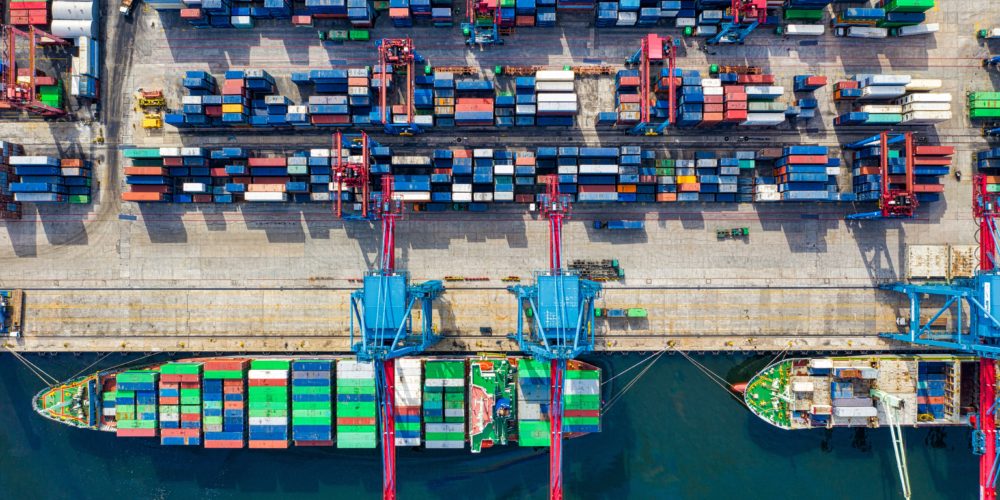Why the pandemic won’t kill globalization

A Brazilian visitor uses his Uber app to hail a Toyota taxi in Nairobi.
You watch a German series on Netflix, sitting on your Kenyan sofa, using a Korean TV, while eating takeout food from a local restaurant, ordered via a delivery app.
Which country benefits from these various transactions?
All of them.
The coronavirus pandemic has caused a hardening of borders and attitudes: high-friction travel between countries; questions about the efficacy of long global supply chains. In many countries there have been renewed calls for making things locally and for reshoring factories that were lost to China and others.
Good luck with that, says Fareed Zakaria in his new book, Ten Lessons for a Post-Pandemic World.
Fareed is a scholar, but he is not merely learned. He’s a keen observer of trends and a weaver of multiple threads. He is erudite and widely read, but he picks up as much knowledge from his ongoing conversations with people in the know. I had dinner with him in Nairobi a few years back and found him a humble and curious listener who took great interest in Africa’s development trajectory.
His new book is a fascinating journey through the many disruptions and accelerations COVID-19 has brought in its wake. I knew I should read it immediately when the back cover told me that in 2017 Fareed had said on his weekly CNN show: “One of the biggest threats facing the United States isn’t big at all. Actually, it’s tiny, microscopic, thousands of times smaller than the head of a pin. Deadly pathogens, either man-made or natural, could trigger a global health crisis, and the United States is wholly unprepared to deal with it…When the crisis comes, we will wish we had more funding and more global cooperation. But then, it will be too late.”
The prophets live amongst us, but they are thinkers and observers, not psychics. And they are mostly ignored.
One particular chapter leapt off the pages for me. Reports of the death of globalization are highly exaggerated, says Fareed. There were already so many protests and populist movements against globalization; will the coronavirus deliver the final nail in the coffin?
Not so fast. Take another look at the examples at the beginning of today’s column. Which part of those experiences are we unwilling to unravel? Do we really want to go in reverse and stop buying our cars from Japan or Germany, our electronics from Korea or China, our software and apps from the US, our cheap medicines from India? What will we then do next? The book quotes another author, Zachary Karabell on globalization: “…it’s easy to hate, convenient to target and impossible to stop.”
After being rocked by shortages, many countries may well wish to manufacture some essential equipment and supplies locally – and there’s nothing wrong with that thinking, provided this can be done efficiently and at similar cost and quality – though perhaps the greater sense lies in creating some buffers and reserve stocks. But a sweeping move against foreign sourcing? That’s just blind-alley populism. It’s what politicians use to roil up their bases; it makes little economic or business sense. No country can make everything it needs; no producer or consumer will want to pay more for inferior quality.
“Human beings don’t want to stand still,” writes Fareed. They have traversed the globe seeking gain and advancement for millennia. Today, information, investments and services zip across the world in a couple of clicks; products and raw materials are perpetually en route. Who will unroll all that, and why?
There’s a broader business lesson, though: be fit to play. Certainly, some governments do rig this game with unfair tariffs and subsidies. Even so, to seek unfair government protection is a loser’s game. What a thoughtful CEO must do is to work on sustainable competitive advantage – the fluid collaborations and thoughtful positioning that produce goods and services that sell themselves. Our aim should not be to shut the world out, but to be indispensable players in the international marketplace. There is a reason so many Kenyans buy Netflix and Toyota and LG. Those products and services compete at the highest levels. To be world-class should be our aim, too.
Governments must also come to the party. Local businesses don’t need artificial support; they just need government to create a smoothly functioning business environment. That means delivering business-boosting infrastructure investments; simple and predictable tax regimes; regional supply chains; protections against sly import dumping; policy stability; and removing the talons of corrupt officials and gatekeepers.
The global marketplace isn’t going anywhere. Our task is to make it fair and free of exploitation; and ourselves worthy players.
(Sunday Nation, 22 November 2020)

Buy Sunny Bindra's new book
The X in CX
here »
Popular Posts
- NY’s wake-up call to the old guardNovember 9, 2025
- Save your strength for repairsNovember 2, 2025
- How to listen, really listenNovember 16, 2025
- Empathy is the missing code in CXOctober 26, 2025
- Use AI, but don’t lose youOctober 19, 2025















